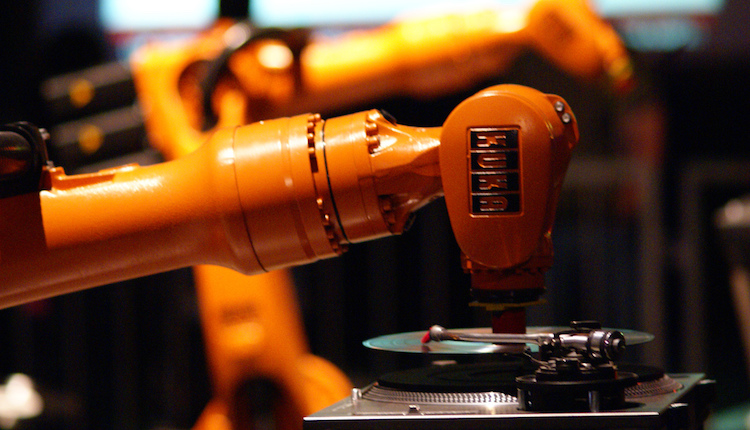I was deep in thought the other day because as i have heaps of old CD's, samples and stuff I have generated, some DJ tools (i can't mix as i am an IT guy) AND wondered where the whole drugs and music trip will go next.
my old audio server dropped some of it's hard drives but it was a NAS farm backup so i installed a later version of CentOS on it as our forum OS is at end of life but i can't get it working just yet (i'm old).
I find these magazines for $1 at my local shopping center and a couple were about the brain, memory and "Tensorflow" (WTF?) and AI tek ... so i wondered if it were possible to build a tool that could mix and meld similar tracks that were to my preferences ?
modulated effects, beats, overlays etc. I have been going nuts studying this shit and i'm obsessed !
am i going crazy or this an amazing idea ? ... or just too much tweak ?
 Artificial intelligence produces realistic sounds that fool humans
Artificial intelligence produces realistic sounds that fool humans
Artificial intelligence and machine learning permeate many aspects of your everyday life. Now they’re creeping into music production, performance, and DJing, and making the formerly impossible possible. We grilled the experts on what machine learning can and will do to change the game of computer music. Should DJs and music producers welcome it as a liberator, or fear it as a usurper of your job behind the decks? Spoiler alert: You’re going to want a better laptop.
Here Come The Machines
Artificial intelligence and machine learning permeate many aspects of your everyday life. Now they’re creeping into music production, performance, and DJing, and making the formerly impossible possible. We grilled the experts on what machine learning can and will do to change the game of computer music. Should DJs and music producers welcome it as a liberator, or fear it as a usurper of your job behind the decks? Spoiler alert: You’re going to want a better laptop.
Every time you do a Google search or use Google Maps, Siri, Shazam, you benefit from artificial intelligence (AI) and machine learning. The trickle of AI-assisted tools in everyday life is quickly becoming a deluge. Machine learning has begun to enable rapid advancements in text and image recognition, automated translation, and medical diagnoses, just to name a few areas.
More and more, machine learning is also affecting the world of music technology. The possibilities for simplifying tasks, enhancing creativity, and fixing mistakes in music production and DJing fascinate the imagination. It’s already being used to determine the key of a track and perform key lock, remove unwanted parts of audio recordings, automate aspects of audio mixing and mastering, create a new type of synthesizer (the Magenta NSynth neural synthesizer), and to “unmix” the each part of drum loops.
Could AI someday replace a DJ?In the not-so-distant future, it’s easy to imagine a machine fixing a trainwreck mix in a recorded DJ set, make acapella and instrumental tracks out of a stereo audio file, and even become a virtual bandmate in your music production. Could AI someday even take your job as a DJ? Let’s slow our roll on that one for now.
 What Does Machine Learning Do?
What Does Machine Learning Do?On a basic level, it’s fair to say that algorithms are the engine of machine learning, and data is its fuel. A subset of AI, machine learning employs algorithms to process huge datasets fed into computer networks, which determine patterns that allow them to process new input data.
Even experts have a hard time explaining how deep learning actually worksThe next level of machine learning, called “deep learning,” stacks neural network layers — loose approximations of a human brain — to process more data than a human brain could. Even experts working in the field have a hard time explaining how deep learning actually works. For example, deep learning has improved the speech recognition of the Amazon Echo neural networks faster and better than the team that created it ever expected, just by people using it more and more.
i won't bore you guys with the technical details because you're not into this type of music but what if i could just fiddle with the bias/weights of YOUR favourite musical database ?
“we gathered tens of thousands of professional mixes from a super-wide variety of styles, and analyzed them according to hundreds of production features and characteristics. Then we closely studied the results of the mastering jobs done by human engineers on those same tracks.”
... th
ere are a few articles out there if you look hard enough [i never looked in the darknet]











